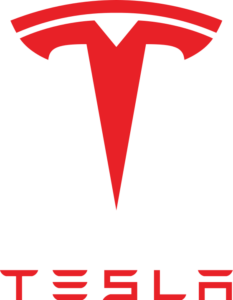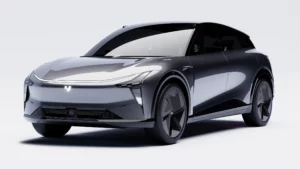Identity Review | Global Tech Think Tank
Keep up with the digital identity landscape.
In 2023, the dawn of self-driving car companies markedly altered the terrain of the global automotive industry. These pioneers, wielding state-of-the-art AI algorithms, groundbreaking sensor technologies, and advanced machine learning models, are poised to redefine personal transportation. They’re spearheading a future where autonomous vehicles are not an occasional spectacle, but a common, safe, and efficient reality. The ascendancy of self-driving car companies is not just a fleeting trend, but rather the inauguration of a new transportation epoch, signifying their potential to revolutionize the roads of tomorrow.

Tesla has sold over 422,000 vehicles in just the 1st quarter of 2023. The industry juggernaut raised over $20B in 37 rounds. Tesla creates only electric vehicles and developed the fastest car in the world. Tesla was also the first mass producer of cars with autopilot, an advanced driver-assistance system. Tesla vehicles have the option for users to upgrade to better self-driving systems that require less human intervention and can almost fully drive themselves, change lanes, take exits, and execute 4-way stops.

Rivian sold almost 8,000 vehicles in the 1st quarter of 2023 and over 30,000 units in total, raising $12B in 12 rounds of funding. Different from Tesla’s sedan fleet, Rivian produces an electric truck and an electric SUV – the cheapest of which starting at roughly $73,000. Their newest initiative is a fully electric pick-up truck, set to hit the market by summer 2024.

Lucid Motors have sold over 5,500 electric vehicles, pulling in 750M in revenue. Lucid makes only one model of car, the Air Touring. Lucid Motors raised 11.3B in 10 rounds of fundraising. Lucid self driving is very similar to Tesla’s advanced driver-assistance system, which is very close to full autonomous driving except requiring the driver to keep a hand on the steering wheel.
Pivoting to China, Nio is the leader for self driving vehicles in China. Based in Shanghai, Nio raised $5.4B in 10 funding rounds. Nio’s fleet consists of sedans, suv’s, and sports cars offering more diversity than the other leaders in the space. Nio has sold 38,000 vehicles thus far, and are taking the Chinese self-driving vehicle market by storm.

Fisker is newer than the others ahead of them on the list, but they are quickly making a name for themselves. Fisker raised $1.2B in 5 rounds of funding and plans to begin sales of their vehicles later this year. Fisker’s vehicles have very similar advanced driver-assistance system technology that can aid drivers but are not fully self driving.

Famous for being an internet giant in China, Baidu has rolled out a fleet of self-driving taxis across 10 cities in China. Earlier this year, Baidu became the first company to receive a permit to allow driverless taxis in China’s capital. Baidu averages 20 trips per vehicle per day, making it the most popular self driving taxi in the world.

Formerly the Google self-driving car project, Waymo created a fully autonomous ride-hailing service. There is no driver in the front and the ride is conducted entirely by artificial intelligence. Waymo raised $5.5B in 3 rounds of funding and is quickly expanding to new cities. Currently Waymo is available in Phoenix and San Francisco with Los Angeles as their next target. When it comes to self driving car companies, Waymo has achieved 100% self driving which is different from the others in the space that created a nearly autonomous car that still needs human intervention.

Owned by General Motors, Cruise is building a robot taxi service that will take passengers to destinations without requiring any human assistance. Cruise CEO Kyle Vogt said that the fleet grew from 130 to 242 in just one year. Cruise is starting to expand outside of San Francisco to multiple cities in Texas.
The transformative wave brought about by self-driving car companies has undoubtedly set the stage for a monumental shift in the automotive industry in 2023. The progress achieved by these companies is not just a footnote in the annals of transportation; rather, it represents a critical juncture, a point of departure from the conventional and a stride towards an autonomous future. As the world stands on the precipice of this transportation revolution, one can’t help but anticipate the remarkable journey ahead, led by these self-driving car companies.
The road forward is clear – the age of autonomous vehicles isn’t on the horizon; it’s here, changing lanes and steering the world towards a new era of mobility.
ABOUT IDENTITY REVIEW
Identity Review is a digital think tank dedicated to working with governments, financial institutions and technology leaders on advancing digital transformation, with a focus on privacy, identity, and security. Want to learn more about Identity Review’s work in digital transformation? Please message us at team@identityreview.com. Find us on Twitter.
RELATED STORIES